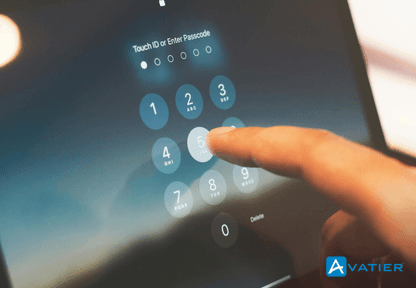July 8, 2025 • Mary Marshall
Privacy-Preserving Authentication: How Zero-Knowledge Proofs Are Transforming Enterprise Identity Security
Discover how zero-knowledge proofs are revolutionizing security. Learn why enterprises are moving beyond traditional authentication methods.

The balance between robust security and user privacy has never been more critical. As organizations face increasingly sophisticated cyber threats, traditional authentication methods are proving insufficient—both in security capability and privacy protection. Zero-knowledge proofs (ZKPs) have emerged as a revolutionary approach that enables verification without exposure of sensitive information, offering enterprises a powerful new paradigm for identity management.
Understanding Zero-Knowledge Proofs in Identity Management
Zero-knowledge proofs represent a cryptographic breakthrough that allows one party (the prover) to convince another party (the verifier) that a statement is true without revealing any information beyond the validity of the statement itself. In simpler terms, it lets you prove you know something without showing what that something is.
For enterprise identity management, this capability is transformative. Rather than storing and transmitting sensitive user credentials across networks, organizations can implement authentication systems that verify identity claims without exposing the underlying data.
According to a recent industry report by Gartner, “By 2025, 30% of enterprises will adopt zero-knowledge proof mechanisms for authentication and verification, up from less than 5% in 2023.” This rapid adoption is driven by the dual advantages of enhanced security and privacy compliance that ZKPs offer.
Beyond Password-Based Authentication
Traditional password-based authentication has long been the standard for enterprise access management, but its limitations have become increasingly apparent. Research from Verizon’s 2022 Data Breach Investigations Report reveals that 82% of breaches involve the human element, including stolen credentials and phishing attacks.
Avatier’s Identity Anywhere Password Management provides modern solutions to these challenges, but zero-knowledge proofs take security a significant step further by fundamentally changing how authentication works. With ZKP-based systems, users can prove they have the correct credentials without ever transmitting the actual password or biometric data across networks or storing them in centralized databases.
This approach eliminates several critical vulnerabilities:
- Credential Database Breaches: Since the actual credentials aren’t stored, there’s nothing valuable for attackers to steal.
- Man-in-the-Middle Attacks: Authentication data isn’t transmitted over the network, rendering interception attempts futile.
- Phishing Vulnerabilities: Even if users are tricked into interacting with fraudulent sites, no actual credentials are exposed.
Implementing Zero-Knowledge Proofs in Enterprise Environments
The implementation of ZKP technology in enterprise identity management requires thoughtful architecture and integration with existing systems. Organizations typically adopt zero-knowledge authentication through a phased approach:
Phase 1: Assessment and Planning
Begin with evaluating your current identity management architecture to identify integration points and potential challenges. Avatier’s Identity Management Architecture provides a comprehensive framework for understanding how new authentication methods can complement existing systems.
Phase 2: Limited Deployment for High-Sensitivity Applications
Start with implementing ZKP authentication for your most sensitive applications and user groups. This might include:
- Financial systems
- Executive access
- Research and development environments
- Healthcare data systems
Phase 3: Integration with Multifactor Authentication
Zero-knowledge proofs can work alongside traditional authentication methods, enhancing rather than replacing your security stack. Avatier’s Multifactor Integration capabilities allow organizations to layer ZKP methods with other authentication factors for defense-in-depth security.
Real-World Applications of Zero-Knowledge Proofs
Several innovative applications of ZKPs are already emerging in enterprise environments:
Credential Verification Without Information Disclosure
Organizations can verify employee qualifications, certifications, or clearances without accessing the underlying personal data. For example, a hospital can confirm a doctor has necessary credentials without maintaining copies of sensitive licensing documentation.
Anonymous Authentication for Sensitive Resources
Users can gain access to resources based on their role or attributes without revealing their specific identity. This is particularly valuable in scenarios where privacy regulations limit what information may be collected or processed.
Regulatory Compliance Verification
Enterprises can prove compliance with regulations like GDPR, HIPAA, or FERPA without exposing the personal data being protected. This allows for effective auditing while maintaining privacy safeguards.
Secure Vendor and Partner Access
Third-party access to systems can be granted based on verified credentials without exposing internal user directories or account details, significantly reducing supply chain identity risks.
Addressing the Challenges of ZKP Implementation
While zero-knowledge proofs offer compelling benefits, their implementation is not without challenges:
Computational Intensity
Traditional ZKP algorithms can be computationally expensive, potentially impacting system performance. However, recent advances have dramatically improved efficiency, making enterprise-scale deployment more feasible.
Integration Complexity
Integrating ZKP systems with legacy infrastructure requires careful planning and potentially custom development work. Organizations should approach implementation with a clear roadmap that accounts for existing systems.
User Experience Considerations
Authentication methods must balance security with usability. Well-designed ZKP implementations can actually improve user experience by reducing the need for password entry while maintaining high security.
ZKPs and the Future of Regulatory Compliance
Privacy regulations continue to evolve globally, with increasingly stringent requirements for how organizations handle personal data. According to Okta’s 2023 State of Digital Identity Report, 79% of IT and security leaders say that demonstrating compliance with privacy regulations has become more challenging in the past year.
Zero-knowledge proofs offer a compelling solution to this challenge by enabling verification without data exposure. This approach aligns perfectly with privacy-by-design principles required by regulations like GDPR and CCPA.
For industries with specific compliance requirements, such as healthcare or education, ZKP technology provides a way to satisfy both security and privacy mandates. For instance, in education environments where FERPA compliance is essential, Avatier’s solutions for education can be enhanced with ZKP methods to provide secure access while protecting student privacy.
Building a Zero-Trust Architecture with Zero-Knowledge Proofs
The zero-trust security model—which operates on the principle of “never trust, always verify”—finds a natural ally in zero-knowledge proof technology. By requiring verification without relying on implicit trust based on network location or resource ownership, ZKPs align perfectly with zero-trust principles.
Organizations implementing zero-trust architectures can leverage ZKPs to strengthen their security posture in several ways:
- Continuous Authentication: ZKPs can enable ongoing verification without disrupting user workflows
- Granular Access Control: Access decisions can be based on verified attributes without exposing user details
- Secure Cross-Domain Communication: Different security domains can interact with verified trust without exposing sensitive data
According to a recent SailPoint study, organizations implementing advanced identity verification methods as part of a zero-trust strategy experienced 60% fewer identity-related security incidents compared to those relying on traditional methods.
Competitive Analysis: How Avatier’s Approach Differs
While other identity providers have begun exploring zero-knowledge technologies, Avatier’s approach stands apart through its focus on practical implementation and seamless integration. Unlike competitors who offer ZKP capabilities as isolated features, Avatier integrates privacy-preserving authentication throughout its identity management suite.
Some key differentiators include:
- Balanced Performance and Security: While some competitors focus exclusively on theoretical security at the expense of performance, Avatier’s implementation prioritizes real-world usability alongside robust protection.
- Comprehensive Integration: Unlike point solutions that create security silos, Avatier’s approach ensures ZKP methods work harmoniously with your entire identity infrastructure.
- Flexible Deployment Models: Whether you need on-premises, cloud, or hybrid implementation, Avatier supports privacy-preserving authentication across all deployment models, unlike competitors who limit options.
- Adaptive Implementation: Rather than forcing a one-size-fits-all approach, Avatier allows organizations to apply ZKP technology selectively where it delivers maximum value.
Getting Started with Zero-Knowledge Authentication
For organizations looking to implement privacy-preserving authentication with zero-knowledge proofs, consider these starting points:
- Assessment: Evaluate your current authentication infrastructure and identify high-value use cases for ZKP implementation.
- Education: Ensure your security and IT teams understand the principles and benefits of zero-knowledge authentication.
- Pilot Implementation: Begin with a limited deployment for specific user groups or applications before expanding.
- Integration Planning: Map out how ZKP authentication will connect with your existing identity management systems, including Avatier’s lifecycle management solutions.
- User Communication: Clearly explain the privacy benefits and any workflow changes to affected users.
Conclusion: The Future of Authentication is Privacy-Preserving
As we move forward, the ability to verify without exposing will become not just a competitive advantage but a fundamental requirement for enterprise identity management. Zero-knowledge proofs represent the cutting edge of this evolution, offering a path to authentication that respects privacy while enhancing security.
Organizations that embrace these technologies now will position themselves advantageously for a future where privacy regulations continue to tighten and security threats grow increasingly sophisticated. By implementing ZKP-based authentication as part of a comprehensive identity management strategy, enterprises can protect their most valuable assets—their data and their users’ trust.
With the right approach and technology partner, the journey toward privacy-preserving authentication can be both straightforward and transformative, setting a new standard for how we think about identity verification in the digital age.









